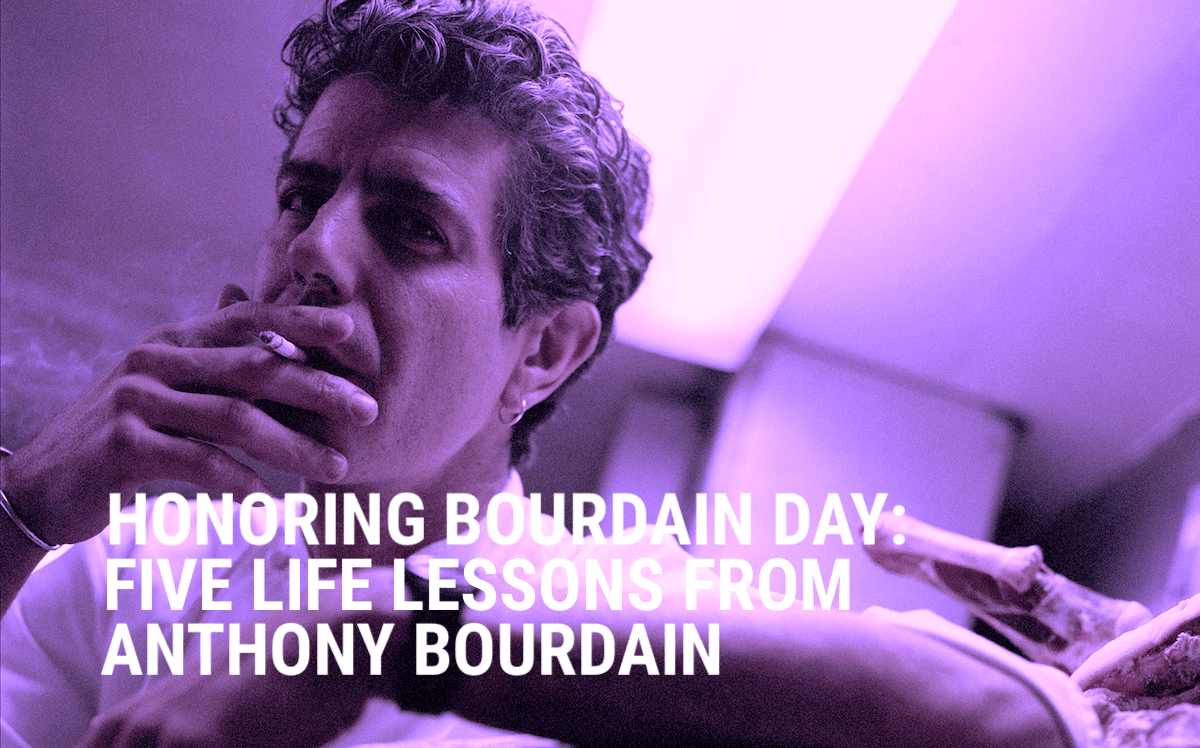James Baldwin was an American writer, active from the 1950s through the 1980s. As a writer of novels, plays, essays and articles, he explored the complexities of personality, society, and politics through his lens as a queer Black man. From his novels that featured gay and bisexual characters to his many essays promoting the Civil Rights Movement, Baldwin was a pioneer in Black, queer, and intersectional communities.
It would be impossible to sum up a man like James Baldwin in a single article. But in honor of what would have been his 99th birthday, here are four lessons we can draw from the life and work of this extraordinary man.
Look to Your Past—and Your Mentors—to Guide Your Present
James Baldwin’s early teachers were instrumental in helping him to grow into the gifted writer and thinker that he became.
Starting at his elementary school in Harlem, young Baldwin found a great deal of support and encouragement. His teachers encouraged his writing and introduced him to the public library in his Harlem neighborhood. One teacher took him to see an all-Black performance of Orson Welle’s version of Macbeth, which sparked his desire to become a playwright.
In junior high school, he met Herman W. “Bill” Porter, a Black Harvard graduate who served as the school newspaper’s faculty advisor. Porter encouraged Baldwin and took him to the 42nd Street library to research a piece called “Harlem—Then and Now” which became his first published piece in the school paper.
He also met renowned Harlem Renaissance poet Countee Cullen, who was his school’s French teacher and English literary advisor. It was Cullen’s influence that began Baldwin’s love of France, where he lived as an adult for many years.
It’s impossible to point to any single influence as the “cause” of Baldwin’s brilliance or love of writing. But had he not had this wonderful network of encouraging teachers and mentors in his young life, would he have become the same iconic writer?

Remember: Movements Are Never Simple
For the average person who has not made a special study of the Civil Rights Movement, we only remember a highlight reel.
Sit-ins and civil disobedience. Rosa Parks’ refusal to give up her seat on the bus to a white passenger and the ensuing Montgomery Bus Boycott. The 1963 March on Washington, culminating in Dr. Martin Luther King, Jr.’s “I have a dream” speech. Brown v. Board of Education declaring “separate but equal” unconstitutional and desegregating schools.
When looking at the progression of events through the 1950s, 1960s, and 1970s, it's easy to imagine that the movement was always cohesive and organized, a single ideology that Black Americans and their allies followed in unison.
But while the goal of improving the lives of Black Americans may have been shared, the right way to get there was often a source of bitter disagreement. Martin Luther King, Jr. advocated for total nonviolence and civil disobedience. But Malcolm X took a hardline stance that required self-defense and advancement of the cause by any possible means; and felt that a stronger separation, not integration, was key to Black futures.
Baldwin himself was somewhere in between. He knew both men personally and wrote frequent essays and articles on race relations and current events in the Civil Rights Movement. He introduced Dr. King at a fundraiser in 1968, wrote a screenplay about Malcolm X after his death, and hosted a fundraiser for the leader of the Black Panther Party when he was in prison.
And yet, as a strong literary voice within the movement, even as a participant, his fluid sexuality and relationships with men kept him an outsider. Neither Baldwin nor Bayard Rustin, another prominent gay member of the Civil Rights Movement, were asked to speak at the 1963 March on Washington. And Bayard was asked to step back from his visible role in the movement.
The right way to achieve a goal—and who gets to fight for it—are always going to be debated. While the term “intersectionality” didn’t exist in Baldwin’s day, we can work today to include wider viewpoints and people of all perspectives in our advocacy.

Reckon with Your History to Create Your Most Humane Self
America is built upon legend. Feel-good narratives of the wise Founding Fathers and lofty rhetoric about freedom and self-actualization make it easy for white Americans to only see the positive in their own history.
In his 1965 essay “The White Man’s Guilt,” Baldwin cried out for a reckoning with the truth behind the myth of America.
“White man, hear me! History, as nearly no one seems to know, is not merely something to be read. And it does not refer merely, or even principally, to the past. On the contrary, the great force of history comes from the fact that we carry it within us, are unconsciously controlled by it in many ways, and history is literally present in all we do.”
It is through our understanding of the past that we—all of us—justify our present worldview. The instinct of many white Americans is to take the myth at face value, to subdue the faults of the founders in favor of a simpler story. We absolve Washington and Jefferson of being enslavers. We gloss over the genocide of Native Americans as part of the inevitable push toward “progress.” We shrug off the three-fifths compromise codified into the Constitution, and brush off the fact that many of the founders wanted to limit government participation to the wealthy and landowners.
We think of our past as noble, well-intentioned, destined for greatness. Because that’s how we can define ourselves as noble, well-intentioned, destined for greatness. It is frightening, Baldwin acknowledges, to truly reckon with our pasts. Because what will that then say about who we are today?
“In great pain and terror one begins to assess the history which has placed one where one is, and formed one’s point of view. In great pain and terror because, thereafter, one enters into battle with that historical creation, Oneself, and attempts to re-create oneself according to a principle more humane and more liberating: one begins the attempt to achieve a level of personal maturity and freedom which robs history of its tyrannical power, and also changes history.”
Avoid Labels That Center the Mainstream To Define the “Other”
James Baldwin was not fond of labels. In an interview with Richard Goldstein in 1987, Baldwin envisioned a future where “No one will have to call themselves gay. Maybe that’s at the bottom or my impatience with the term. It answers a false argument, a false accusation…that you have no right to be here, that you have to prove your right to be here. I’m saying I have nothing to prove. The world also belongs to me.”
He felt the same about identifying as Black. For him, these categories of humanity were really about defining what was mainstream—so you could also define what was not mainstream. "As long as you think you're white,” he said, “I'm going to be forced to think I'm Black."
Baldwin believed that self-identity was strictly personal, that only the individual could decide who and what they are. “I was not born to be what someone said I was,” he said. “I was not born to be defined by someone else, but by myself, and myself only.”

Acknowledge the Miraculous in Everyone—And Protect Yourself From Their Worst Instincts
Reflecting on the death of Martin Luther King, Jr. in 1972, Baldwin wrote:
“Perhaps even more than the death itself, the manner of his death has forced me into a judgment concerning human life and human beings which I have always been reluctant to make…Incontestably, alas, most people are not, in action, worth very much; and yet, every human being is an unprecedented miracle. One tries to treat them as the miracles they are, while trying to protect oneself against the disasters they’ve become.”
There is so much more to learn about James Baldwin. His relationships. His writing. His time in France and the American South. For more about the man, start here:
- Watch I Am Not Your Negro, a 2016 documentary that integrates James Baldwin’s unfinished manuscript Remember This House with interview and historical footage
- Read Begin Again: James Baldwin’s America and its Urgent Lessons for Today by Eddie Glaude for an insightful look into Baldwin’s
- Read Talking at the Gates: A Life of James Baldwin by James Campbell
And to dig into his work, start here:
Notes of a Native Son (essays)
Go Tell It on the Mountain (novel)
The Fire Next Time (essays)
Giovanni’s Room (novel)
If Beale Street Could Talk (novel)
Contributed by Kate McDermott














